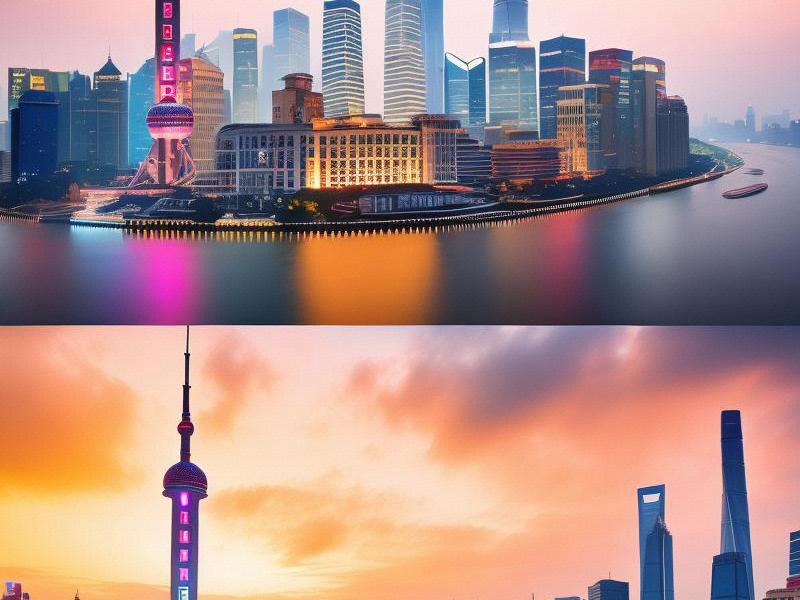
Nestled along the banks of the Huangpu River in eastern China, Shanghai stands as a beacon of cultural fusion and modern innovation. As one of the world's most dynamic cities, Shanghai's culture is a rich tapestry woven from threads of history, tradition, and contemporary flair. This article embarks on a journey to uncover the essence of Shanghai culture, highlighting its unique characteristics and the factors that make it a global cultural hub.
Historical Foundations of Shanghai Culture
Shanghai's cultural identity is deeply rooted in its history. Originally a small fishing village, Shanghai began to grow in prominence during the Ming and Qing dynasties as a major port city. Its strategic location along the Yangtze River Delta made it a crucial hub for trade and commerce, attracting merchants and immigrants from diverse regions.
The opening of the Treaty Ports in the mid-19th century marked a turning point for Shanghai. The influx of foreign powers, including Britain, France, and the United States, led to the establishment of concessions, which brought about a unique blend of Eastern and Western influences. This period saw the construction of iconic buildings such as the Bund and the French Concession, which stand as testaments to Shanghai's colonial past.
Cultural Diversity and Fusion
One of the defining features of Shanghai culture is its cultural diversity. Over the centuries, the city has been a melting pot of different ethnicities, religions, and traditions. The presence of Chinese, British, French, American, and other international communities has contributed to a rich tapestry of cultural exchange.
爱上海同城419 Shanghai's culinary scene is a prime example of this cultural fusion. The city is renowned for its vibrant food culture, which combines traditional Chinese flavors with Western influences. Dishes such as xiaolongbao (soup dumplings), shengjianbao (pan-fried buns), and chow mein reflect the city's culinary heritage, while international cuisines like French haute cuisine, Italian pasta, and Japanese sushi are also widely enjoyed.
The arts in Shanghai also showcase this blend of tradition and modernity. Traditional Chinese opera, calligraphy, and painting have coexisted alongside contemporary art forms such as modern dance, theater, and music. The city's art scene is thriving, with galleries, museums, and cultural institutions showcasing both local and international works.
Modern Innovation and Urban Development
In recent decades, Shanghai has transformed into a global metropolis, renowned for its modern architecture, technological advancements, and vibrant urban life. The city's skyline is dominated by iconic skyscrapers such as the Shanghai Tower, Jin Mao Tower, and the Oriental Pearl Tower, symbolizing its status as a global financial hub.
Shanghai's commitment to innovation is evident in its rapid development of smart city technologies. The city has embraced digital transformation, with initiatives aimed at improving transportation, healthcare, and public services through the use of artificial intelligence, big data, and the Internet of Things. This focus on innovation has positioned Shanghai as a leader in China's tech-driven economy.
The city's urban planning and infrastructure reflect its forward-thinking approach. The Maglev train, one of the fastest commercial high-speed trains in the world, connects Shanghai to nearby cities, showcasing the city's dedication to efficient transportation. The development of Pudong, once a rural area, into a bustling financial district highlights Shanghai's ability to adapt and grow.
上海龙凤419手机 Artistic Achievements and Cultural Institutions
Shanghai's artistic achievements are celebrated through a variety of cultural institutions and events. The Shanghai Museum, one of the largest and most prestigious museums in China, houses an extensive collection of ancient Chinese art, including ceramics, bronzes, and calligraphy. The museum attracts millions of visitors each year, making it a cornerstone of the city's cultural scene.
The city's theaters and concert halls provide a platform for both traditional and contemporary performances. The Shanghai Grand Theatre, designed by the French architect Jean-Marie Charpentier, hosts a wide range of performances, from opera and ballet to symphony concerts and contemporary theater productions. The annual Shanghai International Film Festival is another major cultural event, attracting filmmakers and audiences from around the world.
Shanghai's vibrant street art scene also reflects the city's creative spirit. Murals, graffiti, and public installations can be found throughout the city, showcasing the work of local and international artists. These artistic expressions add a dynamic and contemporary element to the city's cultural landscape.
The Harmony of Tradition and Modernity
上海贵族宝贝sh1314 What sets Shanghai apart is its ability to seamlessly blend tradition with modernity. The city's historic neighborhoods, such as the Old City and the French Concession, preserve the architectural and cultural heritage of the past, while its modern districts, like Lujiazui and Pudong, showcase the city's futuristic vision.
This harmonious coexistence of tradition and modernity is evident in Shanghai's festivals and celebrations. The Mid-Autumn Festival, with its mooncakes and lanterns, and the Spring Festival, with its dragon dances and red envelopes, are celebrated with great enthusiasm. At the same time, the city hosts international events such as the Shanghai Fashion Week and the Shanghai World Expo, attracting visitors from around the globe.
Conclusion
Shanghai's culture is a dynamic and multifaceted phenomenon, shaped by its rich history, cultural diversity, artistic achievements, and commitment to innovation. The city's ability to blend tradition with modernity has made it a global cultural hub, attracting millions of visitors each year.
As Shanghai continues to grow and evolve, its culture remains a vital part of its identity. The city's historical landmarks, vibrant arts scene, and innovative spirit reflect its unique position as a bridge between the past and the future. Whether exploring its historic neighborhoods, savoring its culinary delights, or immersing oneself in its artistic achievements, Shanghai offers an unforgettable experience that captures the essence of Chinese culture in a modern context.
In conclusion, Shanghai's culture is a testament to the city's resilience and adaptability. It is a city that embraces change while honoring its roots, a place where the old and the new coexist in perfect harmony. As we look to the future, Shanghai's culture will undoubtedly continue to evolve, captivating the hearts and minds of people from all corners of the world.
